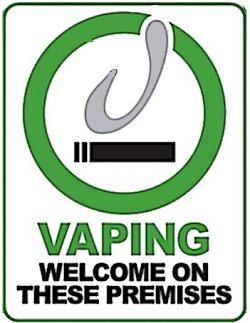Are We Seeing The End Of Public Vaping With California’s Ban?
As it is right now, “vapers” or people use electronic cigarettes to get their nicotine fix instead of smoking tobacco cigarettes enjoy more freedom than cigarette smokers. However, they are facing a threat from California’s impending ban on vaping.
The state recently passed a bill that prohibits the use of electronic cigarettes in all the places where cigarette smoking is also banned. Although the bill still has to be approved by the Assembly, some establishments like the UCLA are implementing the law in advance. Ironically, it banned vaping in its premises on the same day (April 22) that cigarette smoking was banned in the state. It does make you wonder why people are rushing to ban vaping when there are no conclusive studies that prove they’re as dangerous as cigarettes.
But Stella Bialous, president of Tobacco Policy International, is quick to point out that it’s precisely this air of mystery that makes electronic cigarettes dangerous. Nobody knows what effects vaping has especially because there are no comprehensive studies that conclusively indicate the risks involved. The studies that are available are few and they only involve specific brands. For example, a 2009 study by the Food and Drug Administration showed that one brand contained trace quantities of diethylene glycol, which is used in antifreeze.
With California’s impending ban, it’s still unknown whether or not the other states will follow suit. Vapers understandably are not happy with this development.
Electronic cigarettes are being used by former cigarette smokers to quit their habit. While it may seem like they’re simply replacing one bad habit for another, the fact is that electronic cigarettes do not contain any tar and any of the known carcinogens found in cigarettes. This is because of the way electronic cigarettes are made – there’s simply no need to use tar.
To get their nicotine, vapers only need to “smoke” their device like a cigarette. Liquid nicotine and other flavors that are contain inside a cartridge are then turned into vapor through the vaporizer, which is powered by a battery.
If the bill banning vaping in public places gets approved at the Assembly, vapers will need to make their habit a little more private and even join the smokers in the smoking longue area, which is really counterproductive considering that vapers smoke in order to make their health better.
Doctors like Michael Siegel of the Boston University School of Public Health doubt if electronic cigarettes really pose a health risk. Any toxic chemical that might be found in a brand are only found in trace amounts (less than 1%) and the vapor dissolves very quickly in the air, unlike cigarettes.
There are many brands of electronic cigarettes and manufacturers, and they have a free reign on what goes into the liquid in their cartridges. Until the industry regulates itself to draw up standards of quality, it is quite possible that the other states will do a California move and ban vaping.




